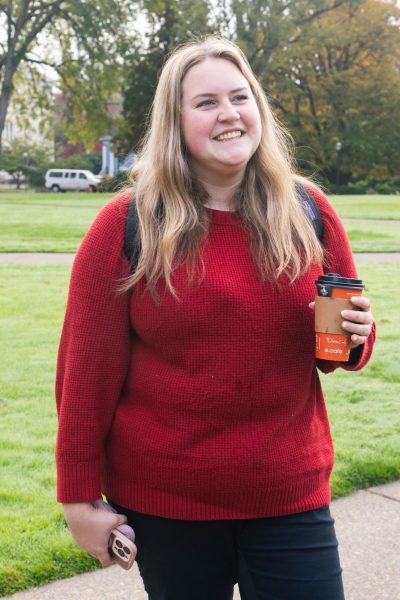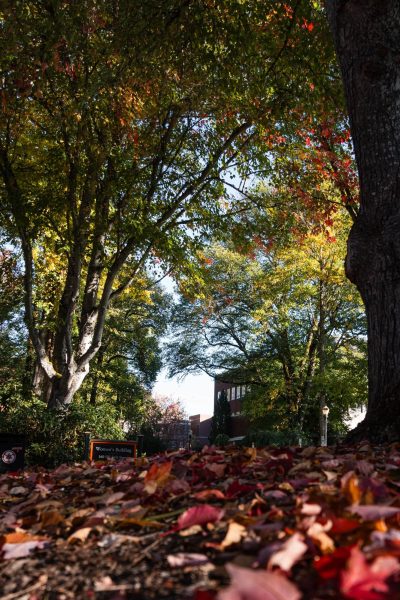- Beavers Digest
- Beavers Digest / Culture
- Beavers Digest / Culture / Businesses
- Beavers Digest / Culture / Community
- Beavers Digest / Culture / Expression
- Beavers Digest / Culture / People
Degentrifying the cannabis industry
Creating an equitable cannabis marketplace for BIPOC business owners
As you walk into the average Oregon dispensary you can expect to see a sleek and curated experience. White walls are lined with glinting glass displays of high quality cannabis products. “Budtenders” in hipster beanies and flannels guide customers through the store, all while your favorite Tame Impala tunes play in the background.
This high-end experience is representational of the recent explosion of the cannabis industry in Oregon. But the stylish storefronts and expensive interiors disregard the complex history of cannabis, a history that has had an immeasurable impact on Black and brown communities all over the country.
Since the legalization of recreational marijuana, the industry has boomed, and is on track to be worth 70.6 billion globally by 2028. But 81% of cannabis businesses are white owned. These white business owners gain massive profits from a drug whose previous criminalization disproportionately imprisoned tens of thousands of Black and brown people and continues to racially target minority communities.
“I think the money has gentrified the cannabis industry,” said Chip Lazenby.
Chip Lazenby is a Black real estate and business lawyer, and owner of Lazenby & Associates. He has done legal consulting in Oregon’s cannabis industry and sat on a few subcommittees that were in charge of writing the laws for Oregon’s cannabis policy.
Throughout his career, Lazenby has observed racial disparities in the business world, and has watched as the cannabis industry has become yet another area where minorities are being left out.
Lazenby explained how the “War on Drugs” was a very real and harmful part of history where Black and brown people were disproportionately targeted and faced harsher sentences for drug possessions. He said there is no denying the racial inconsistencies embedded in the “War on Drugs,” but explained how that is not what’s keeping communities of color out of the industry today.
The racist origins of our country have created a deeply embedded system of inequality that has made it harder for minority communities to thrive in the business world across the United States.

However, what made Oregon’s system of racism slightly unique is that the extreme Black Exclusion Laws from the 1800s have left the population of Black people in this state very low to this day—at around 2%, according to the 2019 census. Lazenby said the lack of numbers in the community has led to less political power and less social, financial and cultural capital among the Black community.
“I knew I always wanted to break into the cannabis industry because of the disparities that Black and Indigenous people of color have faced,” said Johannah Hamilton, citing her main inspiration for opening her store, Melanin Minerals, a Corvallis-based CBD self-care shop.
“There is systemic racism that’s been intentional to keep Black people out of these spaces,” said Hamilton.
Lazenby said in the business world, people go into business with people they know. Connections are everything, but because we still live in a largely segregated society, Lazenby said the difficulty of getting a start up off the ground is much more challenging for people of color.
Hamilton explained how the exposure and access to resources was one of the most difficult aspects of opening her own business.
“I had a really hard time getting my name out there at first,”Hamilton said. “I think one of the biggest barriers for people of color to get into the industry is capital and stigma around the drug.”
Hamilton said because there are still so many people of color in prison for petty weed possession and selling charges, there is still a lot of stigma around the drug, which makes it even more difficult when opening a business.
When cannabis was legalized, Lazenby said Oregon took a free market approach. Essentially, this means if you can pass the criminal background check and you have the funds to pay for a license, then the state will give you a license. As a result, the market has expanded in extreme ways, and there is now an abundance of product surplus.
Unlike Oregon, Washington originally set a limit on the number of licenses that could be issued, and then waited to observe the demand, prices and participation in the industry. Doing this also allowed the state to make more demand on the industry in terms of diversity and inclusion.
According to Lazenby, there are three main issues with Oregon’s system.
First, because cannabis is still federally illegal, if a conservative president is elected it leaves the state vulnerable to crack downs. Second, because Oregon gave out so many licenses the surplus of product results in cannabis growers losing out on profits. Third, the quick expansion of the industry makes it even more difficult for small plays to get involved.
Making cannabis federally legal, as it is in Canada, could be great but it must be done in an intentional manner, he said.
“The only way you could actually play in that market is to be a well capitalized corporation,” said Lazenby.
Lazenby and Hamilton both wish to see the Oregon government “put their money where their mouth is,” as Hamilton said, and work on active solutions that will attract candidates of color into the industry.
Lazenby offered the idea of starting a cannabis academy, potentially set up in the community colleges as a highly accessible trade school where people can go to learn about the intricacies to growing and selling good cannabis products. Having this as an accessible option across the state would promote diversity, cross capital relationships and include young people, according to Lazenby.
He also suggested Oregon creates a revolving loan to help minorities get their start up off the ground. The pay back on the loan could fund another start up. The state could also offer incentives such as a reduced licensing fee to companies that demonstrate utilization of minority forms.c
Hamilton said she hopes to see the state prompt more of an equitable agriculture policy.
Lazenby stressed that the solution is not simple—just one policy option will not solve the problem. He urged the importance of white people, or Europeans, as he prefers to call them, to take a more active role in creating change.
“You know we don’t need allies—an ally is a person that gives you a hug or takes you out for a cup of coffee,” Lazenby said. “What we need are accomplices. An accomplice is behind the wheel of the car with the engine running at the curve, as you dismantle the racist systems that are out there.”







